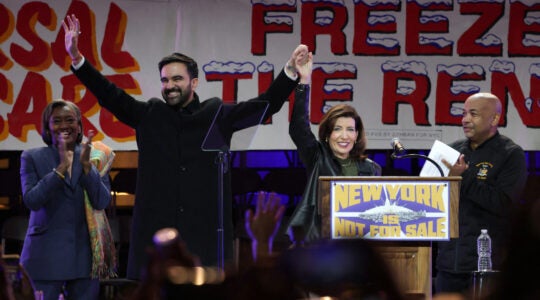“What Do Women Really Want?” read the headline of a recent post on the website of the Orthodox Union, whose ruling against women taking on clerical roles has caused a mini-tempest in a rather insignificant teapot. (Hint: the answer isn’t that they want to become rabbis.)
The OU serves the Jewish community well and makes a very good living certifying kosher products. Even better, it works closely with some manufacturers to actually bring to the kosher market products of the fantasy of my youth…like Oreo cookies.
The OU also sponsors Yachad, “the only international organization promoting inclusion for children and adults with disabilities in the broader Jewish community.” And as anyone who has ever participated in a Yachad program can tell you, it is an inspiring undertaking that deserves communal support.
So far so good.
For synagogues, being a member of the OU was once a badge of pride and signified being part of an organization dedicated to creating a modern Orthodox reality that was unique to the American experience and empowering to its members.
So far so good. But then the religious world took a right turn and the OU followed. Worse, the same kind of reliance on male rabbinical infallibility that characterized the recent “ruling” on women was at the heart of a serious sexual abuse scandal that came to light in 2000 [in The Jewish Week] after decades, despite multiple warnings and pleas for help.
Frankly, today, while the OU’s relevance in terms of kashrut remains at a high, I doubt that many congregations are aware that they still pay congregational dues — which puts them in the category of the vaguely threatened if they hire a women clergy member.
To be clear, the OU has every right to take the position they took in coming out against women in clerical roles. It had every right to limit the rabbinic panel to men whose world view is the learning halls of Yeshiva University and synagogues in the New York area. And perhaps most importantly their interpretation of the halachic issues involved is no better or worse than the opposing view. And I suspect the OU has more supporters for its side of the debate.
Read carefully, one sees that the halachic paper, written in English and well annotated, is not the rabbis’ primary argument. Male hegemony and fear of change is far more central to their position. The “Borsalino Brotherhood” doesn’t like change. Full stop.
All of which is why this is a mini-tempest in a rather insignificant teapot. The only people who really care about what they say are the people who do care, have every right to care and will not be persuaded by a counter religious view.
To suggest that there is a rebellion by the Open Orthodox camp is nonsense. Are they boycotting kosher products and restaurants with OU certification? Are the more liberal Orthodox rabbis with YU rabbinic ordination giving it back? I think not.
Time to move on.
If you support women clergy, like I do, and believe that its critical to have women serve communities with equal footing as men, make yourself known in your congregation. But please, let’s stop running after the Neo-Charedim for affirmation. It’s a wasted effort and embarrassing.
I used to think it was a semantic issue – Orthodox, Modern Orthodox, Open Orthodox — but Judaism doesn’t need yet another term. It’s a big enough world to find your own place and support the institutions that support you and your needs.
Me? I am more comfortable in a chasidic shtibel than more egalitarian forms of prayer, not for halachic reasons, just out of choice. But I passionately believe women rabbis are a necessity and I suspect there are many like me.
Women rabbis are not for everyone. Nor are male rabbis, for that matter. We all need to find our comfort zone and do so with respect for the other.
David Sable is a New York businessman and member of the board of The Jewish Week.
The New York Jewish Week brings you the stories behind the headlines, keeping you connected to Jewish life in New York. Help sustain the reporting you trust by donating today.




